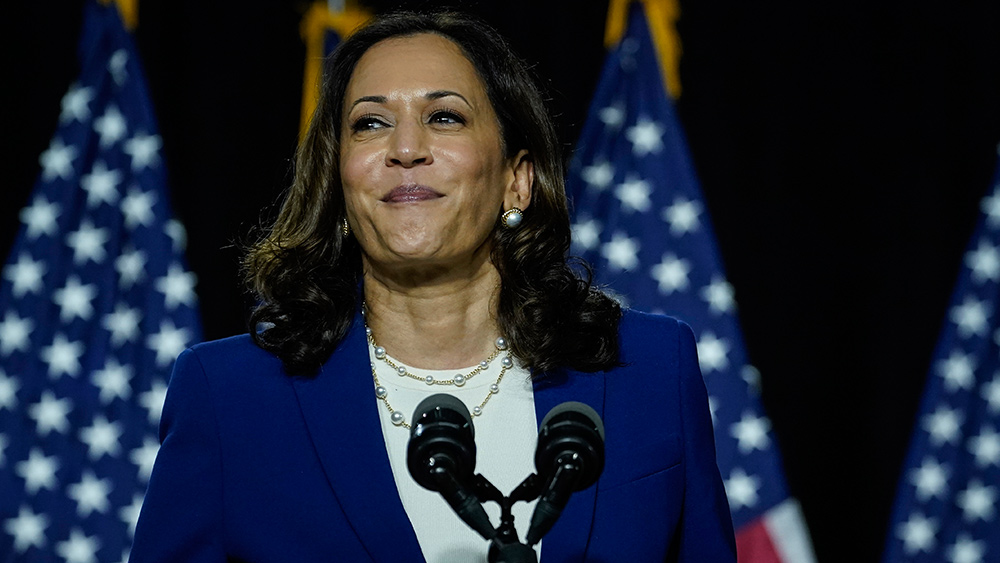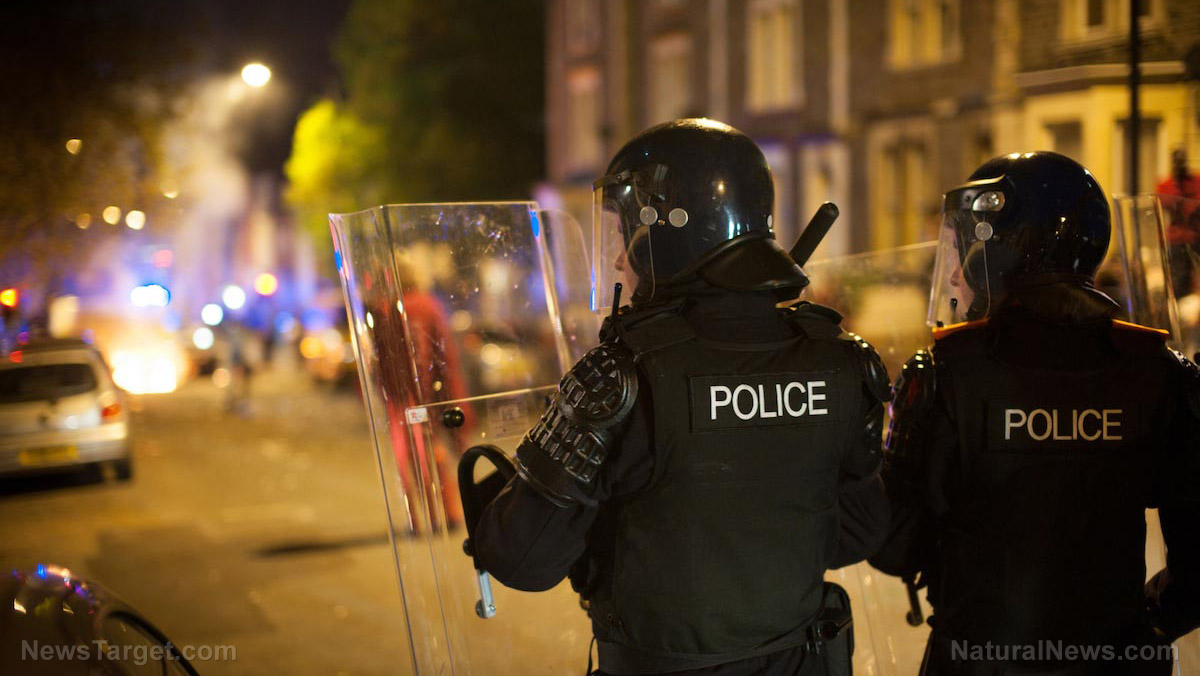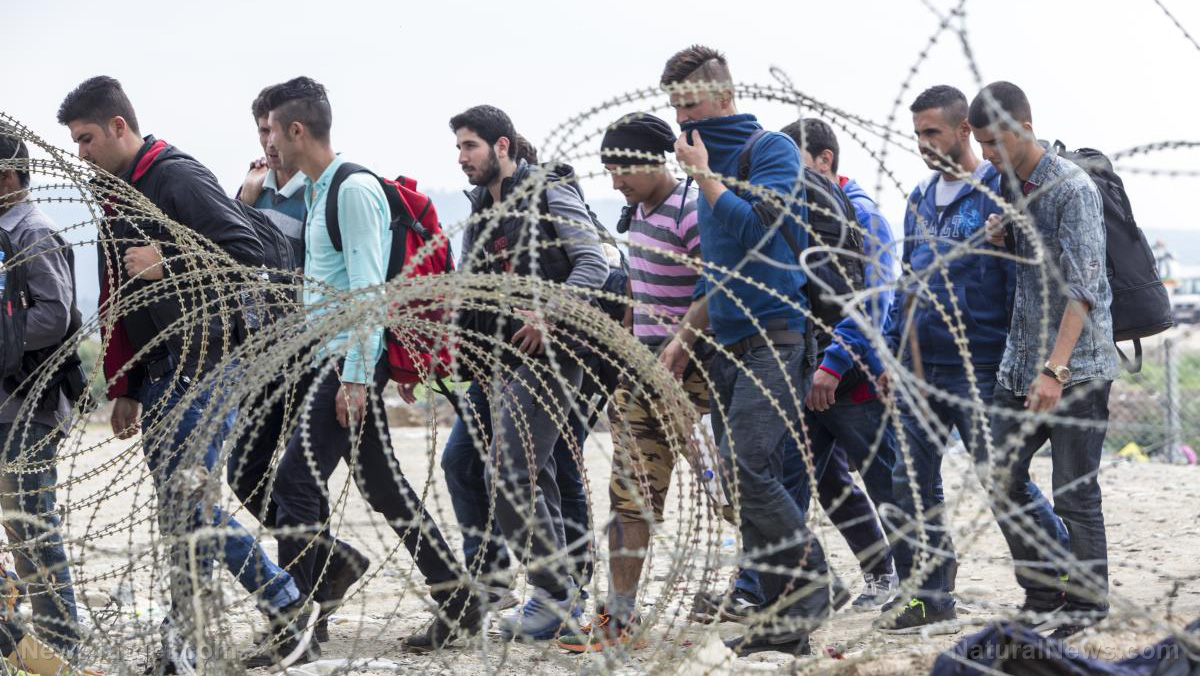Travelers rush to leave Lebanon amid fears of growing tension and canceled flights
08/19/2024 / By Zoey Sky

The recent assassinations of Hamas political leader Ismail Haniyeh and Hezbollah military chief Fuad Shukr have ignited heated vows of vengeance from Iran and other groups, leading to tensions skyrocketing and travelers in Lebanon panicking for the airports.
Hezbollah, the Lebanese Shia Islamist political party and paramilitary group supported by Iran, has exchanged fire almost daily with Israeli forces in support of Hamas, which the former is closely allied with, since the Palestinian militant group’s Oct. 7 attack on Israel last year sparked the ongoing war in Gaza.
Haniyeh and Shukr’s recent assassinations have caused tensions to reach a fever pitch. As a result, many travelers flocked to Beirut-Rafic Hariri International Airport on Aug. 4, Sunday, after several airlines canceled flights and fears spread of more flight cancellations due to the potential outbreak of all-out war between Israel and Hezbollah. Many travelers who rushed to the airport have canceled the rest of their summer holidays.
One such traveler, Joelle Sfeir, wasn’t happy to leave Lebanon. Sfeir, who works in France, added that she wanted to spend the whole summer in Lebanon before going back.
While waiting at the crowded departures hall at Beirut airport, Sfeir said that her flight was canceled and she was forced to book another ticket, which also meant she had to cut her trip short so she could find a flight.
Other airlines, such as Air France and Lufthansa, have delayed or suspended flights to Lebanon.
Meanwhile, countries have issued urgent calls for foreign nationals to leave in the coming days. On Aug. 4, France warned its citizens about “a highly volatile” situation.
Jordan issued a similar warning to its citizens. The country was involved in shooting down Iranian drones when Iran launched unprecedented retaliatory attacks against Israel back in April for an Israeli strike on an Iranian diplomatic complex in Syria.
On Aug. 3, the U.S. embassy in Lebanon advised its citizens to leave on “any ticket available.”
Britain’s Foreign Secretary David Lammy urged British citizens to “leave now.”
Many countries already had travel warnings in place, but have issued recent advice following the latest developments in Lebanon.
Turkey updated its travel advisory for Lebanon, urging those who do not need to stay in the country to leave while commercial flights are still active.
Travelers trying to avoid being stuck in Lebanon
Fears were triggered because many believed that the months of cross-border violence could turn into an all-out conflict between Hezbollah and Israel. The two last fought a devastating war back in the summer of 2006.
Israel bombed Lebanon’s only passenger airport in Beirut during the 2006 war.
In Beirut airport’s departures hall, families waited on metal seats and children were in their parents’ laps. Passengers anxiously and checked television screens for flight departures for locations such as Amman, Cairo and Istanbul. (Related: Western nations cancel flights to Lebanon amid rising Israeli threats.)
The tensions and cancellations have affected travel plans for many Lebanese who work or study abroad and who usually spend their annual summer holiday visiting relatives and friends back in their home country.
Gretta Moukarzel, who runs a travel agency near Beirut, said she received many calls from worried clients who “want to leave and who fear being stuck in Lebanon.”
In an interview, Moukarzel said it was difficult to find seats because of the number of canceled flights and the increased demand, especially for European countries. She added that many of the Lebanese citizens who were returning to Lebanon for the holiday had canceled their reservations.
Passengers at the airport were also stuck in long lines at check-in booths and again to pass through security.
Sirine Hakim, 22, shared that she had spent almost three weeks in Lebanon to reunite with her family and that the events had forced her to leave due to work commitments abroad.
Near the arrivals area, which was usually crowded during the summer season, only a small handful of travelers were waiting for loved ones.
While driving along the airport road that passes through Beirut’s southern suburbs, a Hezbollah stronghold, a huge billboard can be seen with images of Hamas’s Haniyeh and Hezbollah’s Shukr reading: “We will seek revenge.”
Both were shown beside Qasem Soleimani, an Iranian Revolutionary Guard Corps commander and head of its foreign operations arm the Quds Force who died in an American drone strike in Iraq back in 2020.
According to an AFP tally, since October 2023, the escalating cross-border violence has killed at least 546 people in Lebanon, which included at least 115 civilians.
In Israel, including the annexed Golan Heights, army figures have revealed that at least 22 soldiers and 25 civilians have been killed.
Visit WWIII.news for more stories about the ongoing conflict in Lebanon and other countries at war.
Watch this clip about an Israeli attack on a Beirut suburb.
This video is from the channel Cynthia’s Pursuit of Truth on Brighteon.com.
More related stories:
U.S. Embassy in Beirut tells Americans: DON’T TRAVEL to Lebanon.
Israeli Prime Minister Netanyahu calls for U.S.-Israel alliance to combat “Iranian threat.”
Sources include:
Submit a correction >>
Tagged Under:
airports, big government, canceled flights, chaos, Collapse, conflict, Dangerous, flight cancellations, Gaza, Hamas, Hezbollah, insanity, Iran, Israel, Israel-Hezbollah conflict, Israel-Palestine war, Lebanon, Middle East, national security, panic, terrorism, transportation, violence, WWIII
This article may contain statements that reflect the opinion of the author
RECENT NEWS & ARTICLES
COPYRIGHT © 2017 COLLAPSE.NEWS
All content posted on this site is protected under Free Speech. Collapse.news is not responsible for content written by contributing authors. The information on this site is provided for educational and entertainment purposes only. It is not intended as a substitute for professional advice of any kind. Collapse.news assumes no responsibility for the use or misuse of this material. All trademarks, registered trademarks and service marks mentioned on this site are the property of their respective owners.




















